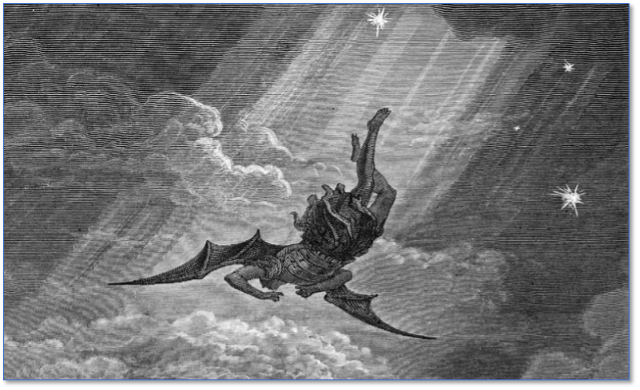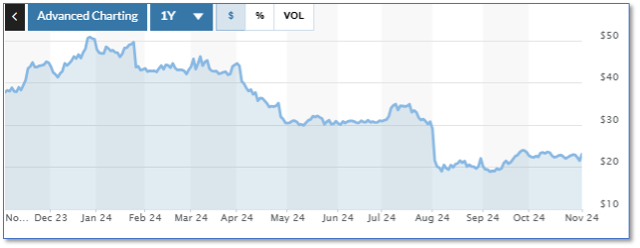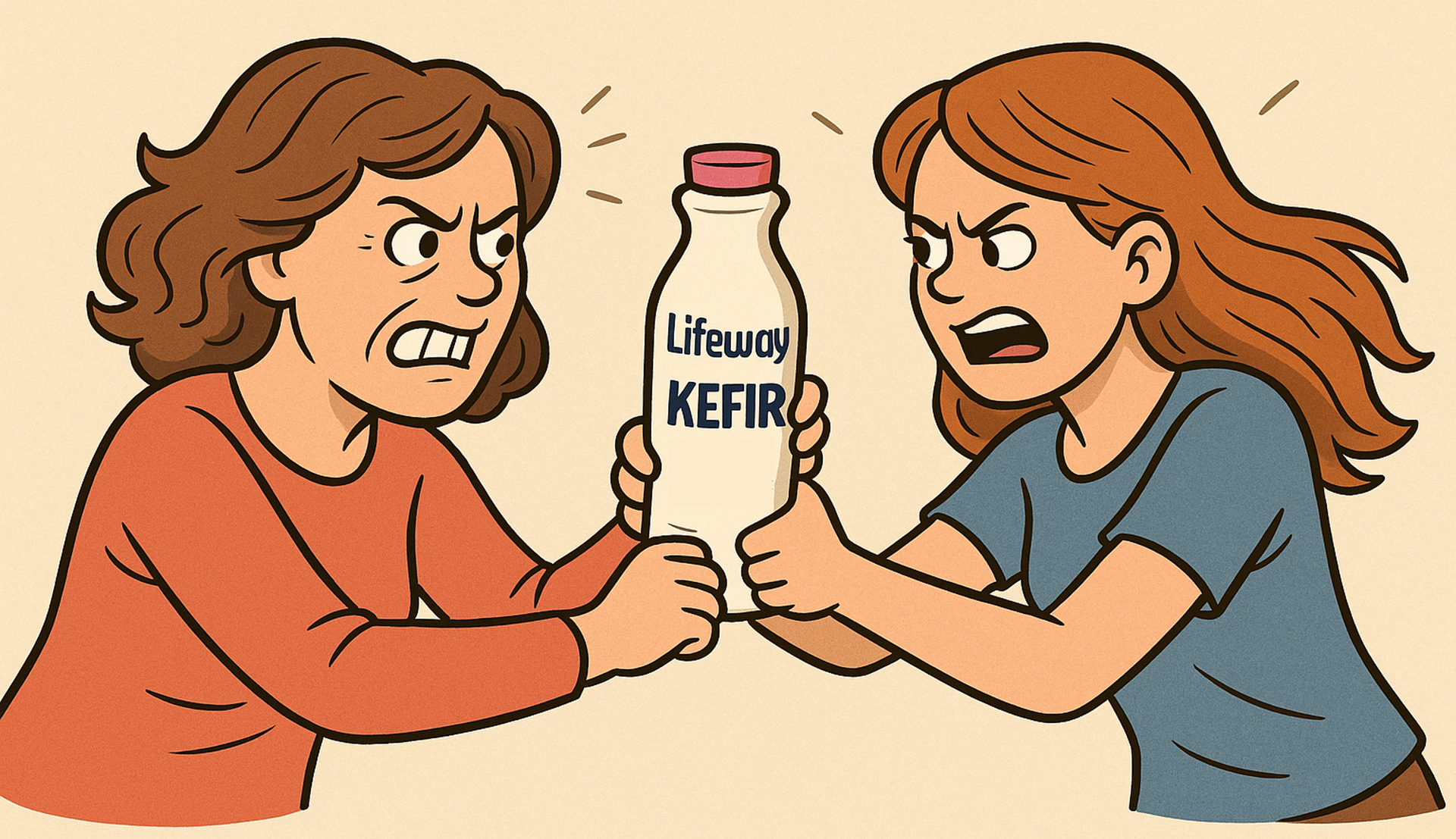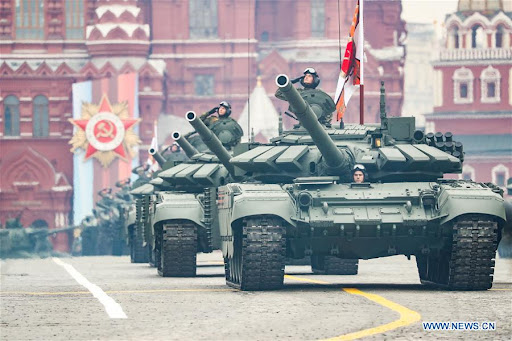Newsroom
Explore our newsroom for our weekly wreck, press releases, and trending topics.
Avoiding Fallen Angels
Overview
Fallen angels bedevil (double entendre intended) portfolio and risk managers. The purpose of this installment is to help readers hopefully avoid these portfolio disasters.

Some History
The term “fallen angels” is typically associated with Satan who rebelled against God and was banished from heaven:
“The Arch-angel Lucifer decided that he was equal to God. A third of the angels were swayed by his delusion and rebelled against God and the angels. As a result of this mutiny, God punished Lucifer and his followers by tossing them out of heaven.”¹
In the investment world, the term pertains to highly regarded, widely followed companies that lose their standing. Below is a summary of recent cases including our view on how things went awry.
The Automobile Sector – Most traditional auto firms are struggling per recent reports:
- Volkswagen Aims to Slash Jobs and Close Plants, Works Council Says²
- Ford’s Third-Quarter Profit Falls as EV Losses Persist³
- Mercedes-Benz Earnings Slump on Tough Economic Backdrop, Fierce Competition⁴
- Jeep Parent Stellantis Taking ‘Drastic Measures’ to Conserve Cash⁵
In our opinion, the underlying cause is that the industry has massive operating leverage (i.e., high fixed costs) and massive financial leverage (i.e., substantial debt relative to operating earnings). Hence a small reduction in volume translates into a substantial decline in earnings. What, then, is disrupting the industry? Several major factors are in play:
- Emergence of electric vehicles (EVs) – EVs are now a credible alternative to internal combustion engine (ICE) vehicles.
- Government mandates – Many governments are mandating that a certain portion of vehicles be electric.⁶
- Payments to EV Manufacturers – The ICE manufacturers are being forced to pay electric car makers in lieu of selling the electric vehicles themselves⁷. They are required to buy credits from EV makers to meet emissions standards.
- Technical Challenges – The ICE firms are having difficulty manufacturing electric vehicles at scale and at a reasonable cost to compete with EV costs.
The upshot, slowly being recognized by the market, is that we are in the midst of a shift in market leadership. Watch for the weakest firms to show the greatest pressure initially. Stellantis, which maintains 14 separate vehicle brands, appears to be facing the most pressure as reflected in its stock price-to-earnings ratio of 2.9. However, even the most prestigious vehicle manufacturers such as Ferrari (P/E ratio of 58) may lose their luster as (1) they transition to electric whereby all brands can boast strong performance and (2) manufacturing vehicles with exotic materials (such as carbon fiber or Alcantara) and exotic form factor becomes more attainable.

At the end of the day, the “falling” (or failing) in this area was caused by a technology shift and government mandates.
The Chip Sector – The news is dominated by the strong performance of Nvidia, AMD, and others. In contrast, the prior darling, Intel, just announced a $16B write-down.⁸ The reality is that the hyper-competitive chip sector long ago saw a shift to greater specialization, whereby chip design (via ARM), manufacturing tools (i.e., chip etching machines) via ASML and manufacturing (via TSMC and Samsung) has proven to be more effective than Intel’s vertically integrated process.

Despite the support of the American government via the CHIPS Act, Intel struggles. Time will tell how far this “angel” falls. The message here is that technology and business models change, and those wedded to old approaches are vulnerable. (Below is a graph of Intel’s one year share price from MarketWatch.)

The Aerospace and Airplane Sectors
– 50 years ago, there were several domestic manufacturers of planes and rockets including, Boeing, Douglas, and Lockheed Martin. Over time, both industries consolidated to the point that Boeing was more or less the sole supplier. With limited alternatives, Boeing was able to negotiate cost-plus contracts with the government whereby Boeing took relatively little risk in developing rockets for space travel. In the airplane sector, Boeing again had little competition as Airbus was the only viable alternative.
In our opinion, the lack of competition is a negative, not a positive, as the culture shifts from one of seeking the best solutions for the market to one focused on maximizing yield from contracts.
We are reminded of it on a weekly, and sometimes daily, basis; in the aerospace sector, Boeing appears to have permanently lost its position to SpaceX and is considering the sale of its business⁹. In the airplane sector, Boeing has missed key development cycles, has ongoing manufacturing issues, and now faces a prolonged strike.

Perhaps the message here is that a lack of competition is ultimately a negative for performance and that a focus on finances at the expense of protecting and enhancing core skills (i.e., engineering) are harmful. Additionally, dependence on government support is typically a negative.
Summation – The proper identification of fallen angels early is critical for all institutional investors and risk managers.
Sources
[2] https://www.wsj.com/search?query=volkswagen&mod=searchresults_viewallresults
[3] https://www.wsj.com/search?query=ford&mod=searchresults_viewallresults
[4] https://www.wsj.com/search?query=mercedes&mod=searchresults_viewallresults
[5] https://www.wsj.com/market-data/quotes/STLA?mod=searchresults_companyquotes
[8] https://www.wsj.com/tech/intel-intc-q3-earnings-report-2024-3ced609a
[9]
https://www.wsj.com/science/space-astronomy/boeing-explores-sale-of-space-business-fa7fa3a9





